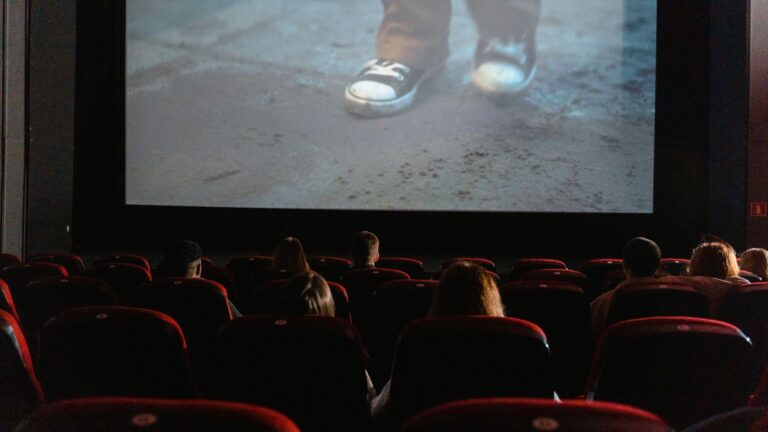Famous Parents: Most famous people set out to be famous, yet many remain committed to keeping their private lives private. Others, such as those mentioned below, have agreed to open a window into their lives to bring attention to a cause that impacts them and many others who do not have the platform of celebrity. ABA Centers of America would like to take this opportunity to salute them for their dedication and passion as they continue to bring much-needed attention to this ever-growing concern.
Since the invention of celebrity culture, it has been an often-repeated truism to point out that famous people, even parents, are “just like us.” The adage primarily referred to paparazzi catching a glimpse of a star at their least glamorous, being caught without makeup, or picking up after their pets, for example. The more a celebrity reveals about their personal life, the more the adage appears true, especially where the ups and downs of family life are concerned.
Conversely, a primary source of frustration for anyone dealing with a health disorder is the lack of empathy and understanding that they can face. Without famous parents linked to a challenge, the way toward treatment and acceptance can feel like they are traveling alone and with little sympathy.
Such was the case for those with autism spectrum disorder (ASD) and, most significantly, their parents for many generations. Having a child “on the spectrum” was often seen as a burden and somehow reflective of a failure by the mom or dad.
There are numerous historical figures who, in hindsight, very likely landed on the autism spectrum. However, since such variations in how someone communicates or interacts with others were seen as unfavorable by society, many went undocumented or remained an outright secret.
In honor of World Autism Month this April, ABA Centers of Florida has compiled a list of famous parents who represent a recent break from a history of shame or embarrassment. We want to highlight that no one is alone, and no one should feel ashamed about an autism diagnosis of themselves or their child.
These famous parents recognize how being open about their personal experience helps their children, other parents like them, and future generations facing this increasing diagnosis.
Famous Actors and Actresses with Autistic Children
Rosie O’Donnell – The comedian, actress, and former co-host of The View has been very candid about sharing her journey with her daughter, Dakota, who was diagnosed with autism in 2016 at age 2-1/2. She opened up about what it means to raise a neurodivergent child in an essay for People magazine entitled “She’s a Gift.” In it, Rosie talks about the emotional impact the life-changing news brought to their household, but mainly she focuses on why she is so grateful. “For me – it’s like an angel fell into my life. I’m not taking away from the pain and hardship that this diagnosis brings to families. [Suddenly,] there’s a child with a lot of needs, and you spend a lot of time trying to connect on their level. It’s not easy – but it’s necessary to let them know they are seen.” This kind of honesty about the highs and lows of the world of ASD is its own gift, as it helps so many more parents feel as though they are now visible, which is priceless.
Sylvester Stallone – Seargeoh Stallone, the second son born to the writer, director, and star of Rocky and Rambo, was diagnosed with autism in 1982 at three years of age. While Sly and his family made the personal decision to keep their son from the spotlight from then on, they also launched a research fund under the National Society for Children and Adults with Autism. In an interview from the time, Stallone mentioned, “I use my films to have premieres that raise money for the fund,” and confirmed more recently that he still bonds with his son through such activities as drawing and working on puzzles, just as any “normal” father would.
Gary Cole – Gary Cole is one of those actors not everyone recognizes, but almost everyone knows. From The West Wing to VEEP, Office Space to Entourage, his career of supporting characters spans nearly 40 years. His daughter, Mary, was diagnosed with autism in 1995, inspiring him to become an advocate for other autistic children. The sense of community made the biggest impression on him at the time. “When my daughter was diagnosed, all I had to go on was ‘Rain Man.’ Mary didn’t process information like you or I do and did not pick up on social cues. But it seemed like I could ask any friend, any relative, and they’d be able to tell me about someone they know with autism.”
John Travolta & Kelly Preston – Jett Travolta was the eldest son of the Hollywood power couple. He was born in 1992 and had a history of seizures from age two. Jett was admitted to the hospital with Kawasaki disease before being diagnosed on the autism spectrum. After his untimely death in 2009, Travolta and Preston revealed that their son had autism and have since become public supporters of autism research and awareness, including the creation of the Jett Travolta Foundation. To mark a recent Autism Awareness Month, Preston shared the heartfelt commemoration, “May we all shine and grant love and respect to children with special needs.”
Famous Musicians/Performers Raising Children on the Spectrum
Toni Braxton – In addition to being public about her son, Diezel, being diagnosed with autism at 2, she has been just as open about his success. “I am one of the lucky parents,” said Braxton, Grammy award-winning singer and advocate. “Early diagnosis changes everything. I will tell you this. I will shout it from the rooftops. My son Diezel is off the spectrum!” While such recovery is possible, it is not yet a common experience for parents. Still, Diezel’s success at age 13 provides other parents with much-needed hope and remains a testament to the difference early intervention can make.
Shawn Stockman – The Boyz II Men multiplatinum R&B singer recognized something was changing with Micah, one son of twins, around their first birthday. Although Micah had been walking and talking just like his brother, he also began to withdraw into himself. After almost a year of pediatrician visits, Micah was diagnosed with autism. Thankfully, Shawn and his wife, Sharonda, felt blessed that they could afford the best doctors, therapists, and services, leading them to advocate for everyone else’s autistic children. Founding their own non-profit, Micah’s Voice, they are committed to building a community for families to gather and support one another. “It’s about raising money and helping parents get their kick start but also about giving them the ability to help the kids throughout their lives.”
Professional Athletes Connected to the ASD Cause
Dan Marino – In 1992, the famous Miami Dolphins quarterback, commentator, and spokesman created the Dan Marino Foundation (along with his wife, Claire) in honor of their son Michael, who was diagnosed with autism at 2-1/2 years old. “You go right to, ‘We’re going to do whatever we can. It’s extremely important that people recognize that with the right care and the right therapy, people can definitely get better and have a great life.”
Doug Flutie – A Heisman Trophy winner with 21 years spent playing professional football, Doug Flutie is the first to admit that his son Dougie Jr.’s childhood disintegrative disorder (CDD) diagnosis was the biggest challenge he had ever faced. Doug and Laurie started the Doug Flutie Jr. Foundation for Autism to help other families access the same opportunities, therapies, and programs their family was fortunate enough to utilize. Twenty-two years later, Dougie inspires everyone around him with his infectious smile and passion for all things sports, as do his parents ongoing commitment to helping others.
A Posthumous Honorable Mention
Ed Asner – Before Ed Asner passed away in 2021, the seven-time Emmy-winning actor and voice artist often admitted that he did not see the signs that his youngest son, Charlie, had autism. Charlie was diagnosed with high-functioning autism at nine, and Asner spent the next two decades speaking out about disability rights (among other passions). “I have felt a responsibility to speak out. To let people know that it’s ok to feel however they want to. To be a guide. I have not done much other than being present and telling my story,” he said. That is not entirely true, as he founded the Ed Asner Family Center to promote self-confidence in differently-abled individuals and bring balance and wellness to their families. A tireless advocate for the causes closest to his heart, Mr. Asner is already greatly missed in the community.
Why Advocacy is Important
When an initial estimation of children with “autistic behavior” was released in 1966, the number was 4.5 per 10,000. Due to advancements in diagnostic techniques and a higher willingness for parents to be honest about the challenges their children are experiencing, that estimate was 1 in every 55 children just two years ago. Today it’s 1 in 44.
The increase is not due to more contributions to the condition but increased public awareness and more open conversations. Famous parents in the public eye have helped tremendously reduce a stigma that should have never been part of the diagnosis.
ABA Centers of America and Embracing Autism Spectrum Disorder
A diagnosis of autism can happen to anyone, regardless of economic or social status. ABA therapy is about building up inherent strengths and developing critical life skills, regardless of where our patients are from or if their parents are famous. There is no better time than World Autism Month to discuss the ABA therapy’s many positive benefits to those with ASD. Breaking the stigma is only the first step in our mission to embrace ASD and all it entails.
At ABA Centers of America, we embrace change as an opportunity to implement our fun, play-based strategies. We have techniques and ideas that can help your child take on any challenge standing in their way. Many of our tried-and-true strategies can make a significant difference for students struggling with a new classroom or daily routine. Get in touch with ABA Centers of America today (by calling (844) 923-4222 or completing the Contact form here) to schedule a free consultation and learn how we can help your family.








